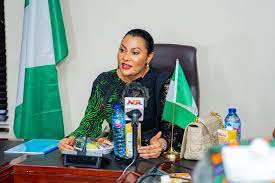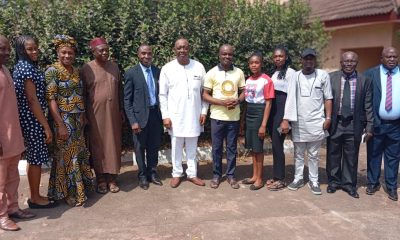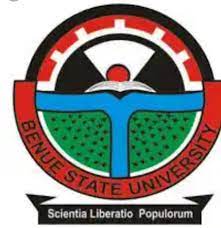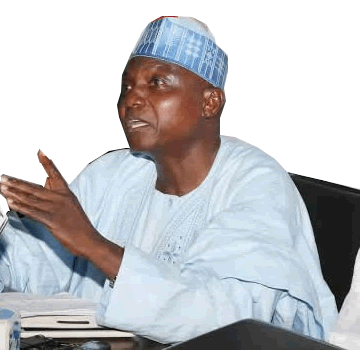OPINION
Reincarnating Mugabe, the Black Hitler, in Lai Mohammed
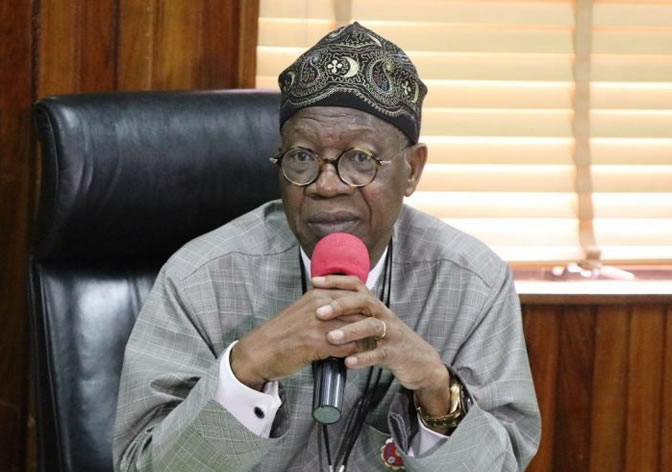
By Festus Adedayo
All through history, even with the advent of modernism, despots who hate the power of free speech always have their own version of repressive ancient monarchies’ abenilori. These were the ones entrusted with the task of beheading opponents, literally or metaphorically.
While Robert Gabriel Mugabe of Zimbabwe had his in Minister of Information and Publicity, Jonathan Nathaniel Mlevu Moyo, President Muhammadu Buhari has Lai Mohammed, his Minister of Information and Orientation. History recorded that Mugabe’s Moyo lent himself as a tool in the hands of a man who became one of the most tyrannical Africans to sit in a Government House. In a full coercive capacity, he helped articulate Mugabe’s wave of oppression against Zimbabweans.Five years younger than Mohammed, having been born in 1957, from 2000 to 2005 and 2013 to 2015, Moyo drafted and vociferously defended Mugabe’s tools of repression. These came in the form of Broadcasting Services Act (BSA) (2001), the Zimbabwe Broadcasting Corporation (Commercialization) Act (2003), the Access to Information and Protection of Privacy Act (AIPPA) (2002), the Public Order and Security Act (2002), and the Zimbabwe Broadcasting Corporation (Commercialization) Act (2003). All of these restrictive legislations were targeted at muzzling freedom of speech and attracted widespread criticisms for their violation of Zimbabweans’ rights to free speech. Upon being brought to the Zimbabwean parliament, Chairman of Zimbabwe’s Parliamentary Legal Committee, Dr. Eddison Zvobgo, repelled AIPPA thus: “I can say without equivocation that this Bill, in its original form, was the most calculated and determined assault on our liberties guaranteed by the Constitution, in the 20 years I served as Cabinet minister.”
So when Nigeria’s own Mugabe tool went the Zimbabwean route in a bill recently parceled to the national legislature seeking amendment to the Nigerian Broadcasting Commission (NBC) Act, so as to enable Mugabe – oh, my apologies, Buhari – control online media operations in Nigeria, it was obvious that, as physicists say, like was attracting like. Last week, the minister told the House of Representatives Committee on Information, National Orientation, Ethics and Values that he wanted the committee “to add that internet broadcasting and all online media should be included in the bill.” In the specifics he seeks, Mohammed wants NBC’s powers amended so that it can superintend over the licensing, registration and regulation of the social media. His morbid thirst for the blood of free speech is not done. He also wants the Press Council Act amended, as well as the Advertising Media Practitioners Council of Nigeria (APCON) code, all in the bid to place the media on the laps of government. And Mugabe smiled mischievously in his grave.
As Minister, Moyo turned pugilist against the Zimbabwean press, until he got expelled from the ZANU-PF. Beaming like a voyeur at the government closure of one of the most vociferous newspapers in Zimbabwe, he had remarked, “The Daily News is a victim of the rule of law which it had been preaching since 1999.” He was vilified in Zimbabwe and became as worthless as the country’s dollar, so much that, in 2005, Asher Tarivona Mutsengi, a student leader, journalist and agronomist at the Solusi University, described him thus: “…he will go down in the annals of history as a minister who lacked foresight and for pouring vitriol against his perceived opponents, his shopping spree in South Africa of scarce foodstuffs, causing unemployment to a multitude of journalists and a penchant for uncivilized propaganda.” Mutsengi poured the last vitriol: “…my final analysis is that he is heading for the precipice… He might be a spin-doctor and intelligent as some claim, but I don’t subscribe to that myself.”
The United States was so chagrined by his role in the muzzling of free speech that it banned him from travelling to America. When in January, 1998, Moyo moved to South Africa’s University of Witwatersrand to work on a W.K. Kellog Foundation-sponsored project entitled The Future of the African Elite, the university later alleged that he eloped with a chunk of the research grant totaling 100 million rand. It got so bad that younger brother of President Thabo Mbeki, Moeletsi of Witwatersrand university, led a campaign to have Moyo jailed if he ever stepped his feet on the South African soil.
Scholars have established that there are two models of leadership that exist in Africa. First is one that swivels from benevolence to repression. The second begins as a dictatorship and significantly graduates into heroism. I add a third and the fourth: a leadership that begins as dictatorship and enjoys this sadism’s bumpy ride till its last day in office. The last is one that begins benevolently and never departs from this highway. Two African Heads of State personify the first two models. They are Mugabe and Jerry Rawlings of Ghana respectively. General Sani Abacha represents the third and Nelson Mandela, the fourth.
Mugabe, African nationalist and ideologue, began his leadership journey as a moderate. By the time he left office in 2019, he had become a world renowned dreaded tyrant. Born in February, 1924 to a poor family called Shona in Kutama, then Southern Rhodesia, later known as Zimbabwe, Mugabe was a Marxist-Leninist, revolutionary and politician who became Leader of the Zimbabwean African National Union (ZANU) in 1980 and served, first as Prime Minister and later, President of Zimbabwe for 30 years, 1987 to 2017.
When this revolutionary got into office, he was extremely people-friendly. He expanded Zimbabwe’s healthcare and education phenomenally, tickling the world into a state of exhilaration. He transited from being a major hater of white rule as demonstrated by his guerilla warfare, especially in the Rhodesian Bush War. He fought lan Douglas Smith’s white government to a standstill and reconciled blacks and white. Smith was a Rhodesian fighter pilot, politician, farmer who ruled Rhodesia as Prime Minister from 1964 to 1979 when he handed over to Mugabe. A dotting world waited on Mugabe as a competent and benevolent leader. He lifted the Zimbabwean economy to double-digits, shot school enrolment up from 2 to 70 percent and more than doubled literacy level from 45 to 80 percent. In recognition of all these leadership feats, Mugabe was garlanded with international awards and honors, the most outstanding being the knighthood he received in 1994 from English Queen Elizabeth II and his shortlist for the 1980 Nobel Peace Prize in the 1980s.
By the turn of this century, however, Mugabe had morphed into a recalcitrant monster and grew fiery Dracula fangs. The world in turn robed him with the trophy of one of the most repressive governments in the globe. The Zimbabwean economy nosedived horribly under his grips, so much that a fourth of the population was forced to flee the country to seek refuge elsewhere. More than 90 percent of Zimbabweans were unemployed and healthcare nose-dived to its nadir, shooting HIV-AIDS prevalence figure to a fifth of the population. Mugabe’s government got so repressive that, in a speech he delivered in 2003, thumping his chest like a matador, he boasted against the opposition that he would rule like a “Black Hitler, tenfold.” Under him, the Zimbabwean dollar became one of the most worthless in the world as he printed the currency at will, forcing inflation to jump to 231 million percent in 2008.
Rawlings, a Flight Lieutenant of the Ghana Air Force, on the reverse, hijacked power in Ghana in 1979 as a bloodthirsty despot. He ordered the execution by firing squad of eight military officers – Generals Kotei, Joy Amedume, Roger Felli, and Utuka and three former Ghanaian heads of state – Generals Kutu Acheampong, Fred Akuffo, and Akwasi Afrifa. Hs wave of oppression included torture, killings and arrests of dissenting voices, as well as muzzling of the press. He later resigned from the military, founded a political party named National Democratic Congress (NDC) and became Ghana’s first civilian President. Towards the latter days of his reign, Rawlings amazingly transited into a benevolent democrat and by the 1990s, had become the IMF and World Bank’s poster boy for good governance, tremendously and positively transforming the Ghanaian economy. Thereafter, he got re-elected and at the end of his terms, he supervised the first peaceful transition of power to another civilian government in Ghana.
The comment of Innocent Madawo, a Zimbabwean journalist and Toronto Sun newspaper columnist, about the Zimbabwean Minister of information, is where I begin my comparative analysis of Nigeria’s Mohammed and Moyo. Apparently frustrated by Moyo’s regression into the hall of infamy, Madawo had said of the Zimbabwean Minister of Information: “…a lot are embarrassed that they ever knew him.” Same with Mohammed. His grandson was probably the most embarrassed. In his self confession, the Minister said the lad confronted him with the notorious narrative of “lie” as substitute for his “Lai” first name that is reigning on the streets.
I have bumped into Mohammed about twice, once as Chief of Staff to the Lagos State governor and another time at the Agodi, Ibadan Secretariat sometime in 2011 and I can say that Mohammed cut the visor of a man who could not hurt a fly. Soft spoken but a man you would goof tremendously if you ever set store by his cranial endowment, he looked like your avuncular neighbor next door. To now imagine that such a man could transmute into and carelessly walk into a Moyo hall of infamy, to many who knew him, is one of the mutative wonders of political power.
Caligula, who the unconscionable quote at the beginning of this piece was attributed to, real name Gaius Caesar Augustus Germanicus, the third Roman emperor, was equally inebriated by power. He was so powerful that he planned to leave Rome, the seat of power and permanently live in Alexandria Egypt, where he would be deified and worshipped as a living god. On 24 January 41, he was stabbed 30 times, like his elder brother, Julius Caesar, by assassins within who disdained the idea of Rome losing out as the seat of power.
A lot has been said of Muhammed’s embarrassing assaults on the sanctity of truth and his weaponization of untruth as instrument of the management of governmental information. He has made himself the proverbial man who hangs on his waist a belt made of grains of corns who invariably gets embarrassingly scampered after by a colony of chickens. His penchant for Goebbelsian lies – from Joseph Goebbels, Germany’s Nazi Party chief propagandist and Reich Minister of Propaganda from 1933 to 1945 – which he dresses in the euphemism of propaganda, is notorious. Mohammed’s most recent infamy, which in my own estimation is his chunkiest assault on common sense and reasoning, is his attempt to get the National Assembly legalize his hatred for free speech.
In his years as Minister, Mohammed has negatively defined the boundary of operations of an information minister to include deodorizing the excrement of the man in power. He blatantly dresses government’s failure in garment of honour and turns upon their heads obvious realities in the polity, just to suit the whims of the people-hating, animal-loving government of Buhari. He has effectively used magical realism and voodoo as a tool of communicating government activities. With the UN recent statement that 4.4million Nigerians were starving, I will be shocked if Mohammed hasn’t issued a release to argue that enemies of Nigeria were behind the claim. His notoriety for blatant contradictions became manifest during the EndSARS protests, especially over its casualty figure as he sought to criminalize CNN’s report on Buhari’s decision to borrow a leaf from South Africa’s Soweto massacre.
Mohammed received flaks across board recently when, in a press interview where he attempted to criminalize Twitter’s yanking off of President Muhammadu Buhari’s genocidal quips, he equated Nigerian president’s outlawry with Nnamdi Kanu’s deranged tweets and sought same treatment for both by Twitter. Last week, while speaking on a Radio Nigeria programme, he claimed that Twitter and its founder, Jack Dorsey, were liable for losses that Nigeria suffered during the protests, alleging that Dorsey, through Bitcoins, raised funds in sponsorship of the protests and his Twitter platform fuelled the crisis. At that point, you begin to wonder if indeed Mohammed was ever at the Nigerian Law School. How can Twitter, either vicariously or otherwise, suffer any liability in a Lekki toll gate civil, lawful protest that, all over the world, is held to be a fundamental human right? He has been exhibiting huge appetite to swallow Twitter up and let out its excrement inside a pit latrine.
I do not know if Mohammed realizes that, as the Yoruba say, the yearly masquerade festival, with its feast of plenty and brawns, no matter how long the frills take, always comes to an end. The son of the Chief Masquerade will thus have to resume his patronage of akara – bean cake – seller at the market square. The muscle-flexing and intoxicating wine of power will by then have melted into nothingness.
Today, Mohammed’s predecessors in mis-wielding of raw power – Mugabe, Moyo, Abacha and many more – have become footages in history. At the end of their tour of coercive power usage and stomping on the people’s right to express themselves, Buhari will conveniently mesh into his conservative Hausa–Fulani society which will garland him as a hero; so will Garba Shehu and other hirelings. Where will Mohammed hide his untruthful face in a very critical, very unsparing Yoruba society? What will be said of him when historiographers and historians are compiling 21st century diary of infamy?
Ayinla Omowura calls one of his for a tete-a-tete
Last Tuesday morning, lovers of the music of late ace Yoruba Apala musician, Ayinla Omowura, a.k.a Hadji Costly, Egunmogaji, lost one of the connoisseurs of that traditional music. Waheed Ganiyu was my friend, with whom I shared intellectual conversations on Omowura. He knew Omowura like the back of his hands, though like me, he never met the Abeokuta, capital of Ogun State-born bohemian musician who was killed 41 years ago in a beer parlour tiff. Ask him what vinyl volume a particular track of the musician could be found, he would tell you off hand, with clinical precision. As a testament to his depth, knowledge and how he lent immeasurable hand in the writing of the book, I showered huge encomiums on Waheed in the book.
But for him, I most probably would not have written the biography of Omowura. He rummaged through information and located me sometime in 2015, clutching earlier pieces I had done in newspapers about Hadji Costly. With that characteristic smile of his, he demanded that I wrote a book on the musician. He would inundate me with calls and pleadings, asking that I should wake up from my procrastination. More out of the need to satisfy him, work began on the book in 2018. You could see the fire of enthusiasm on his face as researches turned up tomes of information about Omowura. He was ever ready to accompany me on the several interview trips I embarked on to Abeokuta and Lagos to talk to sources about the musician.
In February this year, Waheed took ill and we all thought he was going to pull through in matter of weeks. Some weeks ago, he called that his health was deteriorating. Ever not ready to burden anyone with his load, he hid details of his existential challenges from his friends. Only for that jarring news of his passage to hit the airwaves last week.
Lovers of Omowura’s music worldwide should not allow Waheed’s only child, Ganiyu Abdulateef Oluwapamilerinayo, a student of Oriwu Junior Model College, Igbogbo, Ikorodu to suffer the absence of his father. Many thanks to Azeez Temitope, a friend of his who offered his shoulders for Waheed to lean on in his last moments. May Allah repose his soul.
Festus Adedayo is an Ibadan-based journalist.
OPINION
Tinubu and the Future of ECOWAS

By Reuben Abati
Two major meetings were held over the weekend that just passed that have implications for the future of the Economic Community of West African States (ECOWAS) and the possible resolution or otherwise of political developments among member-states in the last two to three years, with implications for the future of the sub-regional organisation.
ECOWAS was established in May 1975, when 15 West African states signed the Treaty of Lagos to establish a platform for the promotion of economic integration. This particular treaty was revised on July 24 1993, but the essential purpose of ECOWAS has remained consistent: trade facilitation, free movement of persons and goods, solidarity, promotion of human rights and peace.The sixteenth member joined in 1977, making the membership 16. In addition to its many guidelines and principles, ECOWAS has a general framework which also guides protocols and relations among members. In July 1991, it adopted the Declaration of Political Principles as a cardinal rule, and in 2001, the ECOWAS Supplementary Protocol on Democracy and Good Governance. One of those protocols is the underlying trigger for this commentary, to wit: the principle of customary international law enshrined in Article 2 (4) of the 1945 UN Charter which binds member-states against the use of force as a means of changing governments, in the absence of armed attack or self-defence.
In 1978, ECOWAS signed a protocol on non-aggression against member states and in 1981, members agreed that in the event of any act of aggression against a member, they would come together in mutual self-defence and protect the victim-state to ensure peace, security and stability, by military means if possible and if inevitable, as seen in the interventions of ECOMOG in Liberia (1990) and Sierra Leone (1998). Even the African Union (AU) enabled by its Article 4(h) can be called upon to intervene when the basic protocols have been breached. This however is a slightly complicated area of the subject which we need not bring into this commentary.
What we know is that ECOWAS specifically sees pro-democratic intervention as its bounden duty, but the effectuation of this has been a problem in the sub-region over the years and to cite a recent example, in 2016, when ECOWAS threatened to deploy a standby ECOWAS force in The Gambia to restore the people’s wish if Yahya Jammeh refused to leave office. Jammeh was eased out and a standby force did not have to intervene.
But a turning point came for ECOWAS when the military seized power in Mali in 2020 and 2021, Guinea in 2021, Burkina Faso in 2022, and Niger in July 2023. ECOWAS, with Nigeria’s President Bola Tinubu as Chair, thought it needed to intervene to return these countries to democracy, the rise of military juntas in the sub-region being a threat to democratic consolidation. ECOWAS suspended the states in line with its protocols and proceeded to impose political and economic sanctions. It threatened to deploy troops if it became necessary. This was an act of political miscalculation.
In the four countries, there were civilian protests against ECOWAS, particularly in former French colonies of Burkina Faso, Niger and Mali. The more interesting part of it is that the ECOWAS was accused of being too pro-French. In Burkina Faso, Mali and Niger, the people publicly denounced continued association with France and specifically in Niger, the people openly waved Russian flags and pulled down French flags.
From Senegal to Niger, a wave of rebellion erupted in the former colonies, in what signalled a creeping failure of French relations with its former colonies in Africa. Senegal has had to shut down French military bases to assert its sovereignty, in Burkina Faso the military junta revoked gold permits that had been awarded to French companies, in Niger, the government similarly cancelled the mining permit of Orano, the French nuclear producer that runs the uranium mines in that country.
In addition, Niger revoked its tax co-operation treaties with France as also did Mali, which broke off from its defence accord with France, and its 11 colonial agreements with the former overlord. In the vacuum created by these new realities, Russia and its Wagner group became the favourite partner of former French colonies in West Africa. The Sahel region has been a hotbed of violence and terrorism and naturally, there were concerns about the implications of the presence of Russia and Wagner in the sub-region and the festering anti-West sentiments in the backyard of ECOWAS members. ECOWAS eventually had to review its threat of sanctions, and military action and adopted the options of diplomacy and dialogue.
This achieved little or nothing. In January 2024, Burkina Faso, Mali and Niger announced their decision to quit ECOWAS. They formed the Alliance of Sahel States (AES) as their own confederation as an alternative to ECOWAS. Their departure under Article 91 of the Revised ECOWAS Treaty would become effective on January 29, 2025. The resort to diplomacy, an afterthought by ECOWAS also yielded no results. In July, ECOWAS appointed President Bassirou Faye of Senegal as the mediator with the aggrieved countries. President Faure Gnassingbe of Togo was also sent on diplomatic shuttles to Niger. President Tinubu as ECOWAS Chairman, also sent other envoys to the Sahel.
Barely a month before the January deadline, there was a meeting of Ministers of Burkina Faso, Niger and Mali in Niamey last Saturday, December 14, where they reiterated that the departure of the three countries from ECOWAS, effective January 29, 2025, is “irreversible.” They however also resolved that the three countries would remain visa-free for all ECOWAS countries after the exit. While the latter resolution may alleviate fears about the free movement of goods and services, there is still the residual challenge of insecurity in the Sahel and the threat of a further tumultuous season in that part of West Africa with wider implications for regional peace.
It is perhaps out of this realisation that the Authority of Heads of State and Governments at its 66th Ordinary Summit last weekend, Sunday, December 15 at the State House in Abuja, decided to vary Article 91 of the Revised Treaty and granted the departing trio an extension of six months from January 29 to July 29. This is basically to create room for further diplomatic negotiations in the hope that the three countries can be brought back into the fold. In Niamey, on Saturday, the AES Ministers still made it clear that ECOWAS leaders are too subservient to France.
Without being specific, they may well have been referring to President Tinubu who recently returned from France where he was treated to a lavish and grand reception by President Emmanuel Macron. It remains to be seen whether the AES would reverse itself. It is a long wait but as certain as daylight, July 29, 2025 would soon be upon us. In the meantime, the ECOWAS Commission has been directed to begin work on the necessary withdrawal formalities, while the mediator continues with last-ditch efforts to keep the dream of the founding fathers of ECOWAS alive, giving the AES an opportunity to have a re-think.
It is further instructive that at the ECOWAS meeting of Heads of States and Governments, President Tinubu, Chairman, took time out to praise the just concluded general elections in Ghana and parliamentary elections in Senegal. He even praised Ghana’s Vice President Mahamudu Bawumia of the ruling New Patriotic Party (NPP) who conceded defeat to the candidate of the opposition, President John Mahama of the National Democratic Congress (NDC). He praised the government and people of Ghana for their maturity. This was a subtle dig at the leaders of the West African countries where the military chose to resort to force and aggression. Without a doubt, the rise of military juntas poses a threat to democracy in West Africa and peace in the region. The romance of the juntas with Russia and China dangerously positions the region as a territory for proxy conflicts among major Western powers. It is an ill-wind. ECOWAS needs to do more to persuade the errant countries to restore constitutional order. The leaders also need to reinvent and retool the organisation.
By next July, it will be 50 years since ECOWAS was established. It would be pertinent to ask: how has the body fared? Has it so far fulfilled the ambitions of its founding fathers? Today, only one of those leaders who established ECOWAS in 1975 is still alive. Would General Yakubu Gowon of Nigeria be proud of what ECOWAS has become? What are the challenges facing the body? How can it be reformed? Mutual suspicion among the various blocs: Anglophone, Francophone and Lusophone has been a major issue for ECOWAS: how can the goal of integration be better realised? In 50 years, whatever the challenges may have been, it can be said that ECOWAS has been pivotal in forging cooperation, integration and trade within the region. ECOWAS in 2010 adopted Vision 2020, and also later a Vision 2050 roadmap to deepen the original objectives of the association.
There may have been challenges: insecurity in the Sahel, Boko Haram in the Lake Chad Basin, Ebola, COVID-19 and the emergent threat of military juntas, but on the whole, the main achievements of the body deserve to be celebrated. ECOWAS fought to restore peace in Liberia and Sierra Leone, and has been vocal in insisting on good governance. There are hitches in person-to-person relations within the body, over trade, commerce and space, but the free movement of goods and services has been largely beneficial. ECOWAS ranks probably as the most successful regional economic bloc in the continent, in terms of conflict management.
But ECOWAS has lost steam. It needs re-organisation. It is unfortunate that the same ECOWAS that acted decisively in Liberia, Sierra Leone and The Gambia is now the same body that is now being treated scornfully by a group of military adventurists who have reversed democratic progress in the Sahel. Their effrontery is fuelled by the descent into poverty and anomie in their countries. The clamour for change that compelled the people of Burkina Faso, Mali, Guinea and Niger to embrace the military is simply their frustration with the leaders in those countries. The people seek change and they embrace it in whatever shape it presents itself, with high expectations too, because they no longer trust their leaders who have alienated them and placed a greater accent on their own elite well-being rather than the common good for the people’s benefit.
The people are led by persons who promote injustice, inequality, and nepotism. They rig elections and do not allow the people’s votes to count. When the military intervenes, the people see the intervention as a form of liberation from the shackles of oppression. In Burkina Faso, Niger and Mali, they trooped to the streets in jubilation, almost like the situation today in Syria with the fall of Bashar Assad and the Assad dynasty, one of the most murderous ruling houses in the Middle East which clung to power for 54 years. In Mali in August 2020, when Mali’s President Ibrahim Boubacar Keita was removed in a military coup over allegations of corruption, fraud and electoral violence, the people were joyous. They carried placards saying “This isn’t a coup. It is a Revolution”. There was yet another coup in May 2021. Similarly in Niger in 2023, thousands of people gathered to hail the generals who led the coup in that country. The urgent matter that West Africa needs to resolve is the challenge of good leadership and governance.
There is a need at the organisational level for a re-dedication to the ideals of ECOWAS, and to develop a higher sense of belonging among the member-states and the over 420 million people that make up the region. As ECOWAS steps into its 50th year, it is in urgent need of reform and we need to see the members being faithful. At the last meeting of the ECOWAS Authority of Heads of States and Governments, Omar Alieu Touray, President of the ECOWAS Commission, commended Nigeria for having paid up its community levies for 2023, with the 2024 levy paid up to July this year. He advised other member states to emulate Nigeria’s example. I guess it has become a habit among ECOWAS members to allow Nigeria to do the heavy lifting in terms of funding while others tag along and yet enjoy the benefits of membership.
It is important that all parties pay their levies as and when due. The various structures of the body must be overhauled to ensure equity and deepen trade facilitation. The ideals of free movement of persons across the region should be enhanced. It must be possible for any national of an ECOWAS state to live and work in any of the member states without being subjected to undue discrimination or harassment. The celebration of ECOWAS at 50 must be an occasion for sober reflection and renewal. President Bola Tinubu was elected for a second term as chairman of ECOWAS in July 2024. He would preside over the 50th-anniversary celebrations before handing over the seat in July 2025. He may have listed some of his achievements as ECOWAS chairman at the 66th Ordinary session in Abuja; he would be required to give a fuller account of his tenure and the status of ECOWAS as part of the 50th anniversary. There is a lot more that can be done.
OPINION
Still on State Police

By Dakuku Peterside
When a policy fails to factor in public response to its benefits and drawbacks, success takes the backseat. Ignoring public behaviour often results in poor implementation and unintended consequences.
In Nigeria, a nation grappling with complex and diverse security challenges, the limitations of centralised policing have become glaringly evident.
Rising crime rates, from terrorism and banditry to cybercrime and kidnapping, expose the inadequacies of the current federal system. The call for state police is not just a matter of political discourse; it is a necessary step toward securing the lives and property of Nigerians.This proposal has gained unprecedented traction across regional and political divides, signalling that the time is ripe for this crucial reform.
The urgency of decentralising policing by introducing state police could provide the much-needed local focus to counter insecurity while fostering accountability and community trust. This vision aligns with global best practices and offers hope for a safer and more prosperous Nigeria, where localised and specialised law enforcement can effectively address the diverse security needs of the population.Throughout history, nations have recognised the need for adaptable and localised law enforcement structures. In the early 20th century, the United States established state police forces to address rising crime and extend law enforcement beyond the capabilities of local authorities. The Pennsylvania State Police, formed in 1905, became the first uniformed state law enforcement agency in the U.S., designed to handle challenges that local sheriffs and municipal officers could not adequately address. This included labour unrest in coal mines and maintaining order in rural areas without sufficient local law enforcement. Over time, state police forces such as the Texas Rangers and California Highway Patrol expanded their scope, dealing with issues from highway safety to organised crime. These forces were pivotal in ensuring law enforcement matched the complexities of an industrialising and urbanising society.
The U.S. experience provides a critical lesson for Nigeria: decentralisation enhances law enforcement’s ability to respond to local needs. For instance, during the Prohibition era, state police units were instrumental in curbing illicit alcohol trade in their jurisdictions, a task federal authorities alone needed help to handle effectively. Similarly, the adaptability of state police allowed them to pioneer specialised units, such as cybercrime task forces in recent decades, which have become crucial in tackling modern criminal activities.
Nigeria’s security challenges, including insurgencies in the North and urban crimes in Lagos and Abuja, could greatly benefit from similar localised and specialised approaches. For instance, a state police unit in Lagos could prioritise urban crimes such as theft and traffic-related offences, while a unit in Borno might focus on counterterrorism efforts against Boko Haram insurgents. This targeted approach could lead to more effective solutions than a one-size-fits-all federal system.
Globally, decentralised policing systems offer valuable lessons. Countries like Canada, India, and South Africa demonstrate how local accountability and responsiveness enhance security. Canada’s provincial police forces work collaboratively with municipal and federal agencies to address diverse security needs. In India, state police forces are indispensable in combating localised crimes and maintaining law and order, especially in states with unique cultural and geographical contexts.
For example, Maharashtra’s state police in India have implemented technology-driven initiatives to combat cybercrime, which would be impossible under a rigid centralised system. These systems are bolstered by robust oversight mechanisms to prevent misuse, ensuring their effectiveness and integrity. Nigeria can draw inspiration from these examples, adapting these practices to suit its unique challenges. This global perspective further strengthens the argument for the state police proposal in Nigeria.
The current structure of Nigeria’s federal police reveals its limitations. With approximately 370,000 officers, the police-citizen ratio is about 1:650, significantly higher than the UN-recommended ratio of 1:450. This shortfall is glaring in a nation of over 220 million people, where security challenges vary dramatically across geopolitical zones. The Inspector-General of Police has highlighted the need for an additional 190,000 personnel, yet estimates suggest that Nigeria requires up to 2.5 million officers for effective policing. Over the past decade, crime rates have surged by over 30%, with kidnapping, banditry, terrorism, and cybercrime becoming increasingly sophisticated and prevalent. In 2022 alone, there were over 3,500 reported kidnapping incidents nationwide, underlining the urgent need for localised and agile policing responses. The introduction of state police could help address this issue by allowing for a more targeted allocation of resources based on regional security needs, potentially improving the police-citizen ratio and overall security.
Support for state police has grown significantly among policymakers, security experts, and civil society groups. A growing consensus is that decentralising policing would empower local authorities and enhance operational efficiency. Even state governors from historically divided northern and southern regions have united in supporting state police. One significant highlight of the 147th National Economic Council (NEC) is a new consensus by all state governments on establishing state police. However, this initiative requires a more robust but speedy engagement to align it with the local cultural context, ensuring that it is appreciated and supported by the citizens it aims to serve. Citizen engagement is not just a formality, but a crucial step to ensure public understanding and support for the state police proposal.
Building trust between state police and local communities is a crucial advantage of this reform. Effective local policing initiatives can foster relationships that build trust and cooperation, especially in Nigeria, where the trust deficit is high. Trust is an essential component of crime fighting. Innovative local community-police liaison arrangements and other community-focused programs can strengthen these ties, creating an environment of mutual respect and collaboration. When police officers understand their communities’ cultural and societal dynamics, they are better equipped to address security challenges and maintain peace. The active participation and trust of the Nigerian public in this reform process are crucial for its success.
Concerns about the potential misuse of state police for political purposes are valid but can be systematically addressed. Abuse of State Independent Electoral Commissions (SIEC) by state governors is often cited. This is another reason why extensive and targeted citizen engagement is key before putting the law in place. Safeguards must be designed and implemented to prevent governors from exploiting state police for political and electoral manipulation purposes, personal gain, or to feed their authoritarian appetite.
Laws prohibiting state police involvement in electoral matters and empowering oversight bodies can ensure neutrality. Clear delineation of the roles and responsibilities of state and federal police will also be essential to avoid jurisdictional conflicts. Establishing a framework for collaboration and information-sharing between the two levels of law enforcement will further enhance effectiveness. However, these measures will require careful planning and execution to ensure their efficacy and address potential challenges such as resistance to change and extensive training and capacity building.
Independent regulatory bodies are critical to ensuring accountability and preventing abuse. A State Police Security Commission (SPSC), comprising representatives from civil society, established professional bodies, legal experts, and public security professionals, could oversee state police operations. Regular audits and public reporting ensure transparency. Additionally, a robust judiciary is essential to protect citizens from potential abuses. Judicial reforms that enhance the independence and efficiency of courts would be vital in supporting this transition. For instance, in Canada, provincial ombudspersons have played pivotal roles in monitoring police misconduct, providing Nigeria with a possible blueprint for ensuring accountability.
Strengthening relationships between police and communities through genuine engagement and collaborative problem-solving must remain a priority. Establishing community advisory boards can provide platforms for dialogue and accountability. Actionable trust-building initiatives, such as open-door policies and periodic town hall meetings, should replace superficial slogans like “Police is your friend.”
Addressing insecurity also requires holistic solutions. Investments in education, healthcare, and youth empowerment are essential for tackling the root causes of crime. Integrating vocational training and social services into crime prevention strategies would complement policing reforms, creating a foundation for sustainable security. For example, a similar approach in India’s Kerala state led to a 40% reduction in youth crime over a decade.
Introducing state police in Nigeria represents a transformative opportunity to address the nation’s security crisis. While challenges are inevitable, they should not deter progress. Beginning the decentralisation process will allow for the identification and resolution of potential issues as they arise. The widespread consensus around reforming Nigeria’s policing architecture underscores the urgency of this change. With proper safeguards, political will, and public support, state police can become a cornerstone of a more secure, equitable, and prosperous Nigeria.
A prerequisite is the government’s robust public engagement and orientation programme to get the complete buy-in of all stakeholders, including the National Assembly, the state assembly and the masses. The time to act is now, and this reform must be embraced as a step toward a brighter and safer future for all Nigerians. Establishing state police would signify a shift in policy and a bold reimagining of Nigeria’s approach to security—one that prioritises the people, respects regional diversity, and lays the foundation for sustainable peace and progress.
OPINION
A Reflection on Daily Trust’s Tension with Tinubu

By Farooq Kperogi
As a media scholar who engages with Nigeria’s media landscape from the safe yet impassioned perch of the diaspora, I have found 2024 to be particularly illuminating in the annals of government-media relations. It presented a study in tension, turmoil, and eventual catharsis.
If the media is society’s mirror, then its cracks often reveal not just distortions but deeper fissures in the polity it reflects.
And nowhere was this more evident than in the July 4 report by Daily Trust, which set the Nigerian public sphere ablaze with moral indignation and, in a twist befitting a Greek tragedy, threatened lives.The Daily Trust report in question bore the sensational headline: “LGBT: Nigeria Signs $150 Billion Samoa Deal.
” In one fell swoop, it conjured a narrative wherein the Bola Ahmed Tinubu administration had purportedly traded Nigeria’s moral sanctity for European coffers flush with foreign currency. It was a claim unburdened by evidence but rich with emotional currency.In its aftermath, it left ripples of moral panic, social turbulence, and political fallout, especially in the Muslim North where issues bordering on religious morality inflame our passions and mentally transport us to celestial realms.
Clerics swiftly mobilized their pulpits and invoked ominous maledictions. Their invocations of divine ire resonated not only within mosques but deep into the social sinews of a people already hampered by mistrust.
Prominent Northerners in the Tinubu administration became objects of incendiary wrath, targets of whispered curses and objects of overt death threats. Family members became collateral damage in this frenzy.
As I pointed out in my July 6, 2024, column titled “LGBTQ Storm in $150 Billion Samoa Deal Teacup,” what Daily Trust did exemplified the literary and journalistic sin of circular reporting, a rhetorical sleight-of-hand where unsuspecting people are fed with false information, made to spout it back, which then gets established as the source of the information.
Alex Haley’s Roots is one of the most prominent examples of circular reporting. Haley’s wildly celebrated epic, initially marketed as historical truth about the life of Kunta Kinte, an 18th-century Mandinka who was captured and sold into slavery in America, was later unmasked as a potpourri of embellished fiction and poorly-sourced “facts.”
In his eagerness to find validation, Haley planted narratives into the mouths of griots in the Gambia, only to repackage their guided, predetermined responses as original confirmation of his fabricated story.
In a parallel act, Daily Trust ignited outrage by feeding its sources erroneous claims about the Samoa Agreement, then turned their emotionally charged responses into a “story”—a journalistic ouroboros swallowing its own tail.
Yet unlike Haley’s indulgence in narrative fiction, Daily Trust’s misstep wasn’t victimless. It carried real and immediate consequences: Vice President Kashim Shettima, the son of a revered Maiduguri Islamic scholar, and Nuhu Ribadu, scion of a distinguished Adamawa family with deep Islamic roots, became unwilling lightning rods for holy vitriol.
Minister of Information Mohammed Idris, himself a bridge between Nupe and Fulani Muslim cultures, found himself straddling a tempest from all corners. All northern Muslims in the Tinubu administration became objects of unappeasable fury.
The Minister’s Delicate Maneuver
Confronted with this escalating storm, Information Minister Mohammed Idris exhibited both restraint and strategic acumen. It would have been easy, even tempting, to unleash the full punitive might of the state upon Daily Trust.
After all, if recent history is any guide, Nigerian courts beckon eagerly to governments eager for retribution. Yet Idris wisely chose not to enter the arena of litigation, where victors are often the defeated in the court of public opinion. To sue would have been to martyr the newspaper, inflame its supporters, and escalate the matter beyond the bounds of reason.
Instead, Idris turned to a tool of elegant resolve: the National Media Complaints Commission (NMCC), Nigeria’s fledgling experiment in self-regulation. Incidentally, it is a forum that was conceived, in a delicious twist of fate, by none other than Idris himself (as publisher of Blueprint, an Abuja-based daily) alongside Media Trust’s Chairman, Malam Kabiru Yusuf.
Together, in the more harmonious days of 2021, after Yusuf’s and Idris’ December 2020 election as chairman and general secretary respectively of the Newspapers Publishers Association of Nigeria (NPAN), they planted the seeds of this Ombudsman, a voluntary watchdog designed to enforce media ethics with an invisible hand.
By July 8, Idris’ ministry formally petitioned the NMCC, requesting an inquiry into Daily Trust’s reckless reportorial infraction that endangered the lives of people in government. It demanded a retraction, an apology, and stricter editorial safeguards against future transgressions.
The NMCC, under the leadership of Emeka Izeze, former MD of the Guardian and widely admired figure in Nigerian journalism, undertook its task with measured diligence. On September 23, the commission issued a 19-page report that cut through the fog of misinformation.
The commission found that although earlier versions of the Samoa Agreement did include provisions for the protection of sexual minorities and marginal gender identities (which many countries, including Nigeria, had rejected), the final 403-page agreement that Nigeria signed did not require any commitments on the part of countries that signed the agreement to codify LGBTQ rights in their law books.
The NMCC’s findings were refreshingly even-handed: while Daily Trust was found guilty of violating Article 2.1 of the Revised Code of Journalism Ethics—a clause that enshrines accuracy as the bedrock of reporting—the commission gently admonished the government for its opacity surrounding the Samoa Agreement. Transparency, it suggested, would have preempted much of the hysteria.
Thus, the judgment did more than hold a newspaper accountable; it underlined an eternal truth about public trust: opacity begets speculation and speculation births chaos.
A Redemption through Humility
On October 2, 2024, Daily Trust rose to the moment with an unreserved apology: “We accept the verdict of the NMCC without equivocation… We apologize to the Federal Government for any inconvenience the story might have caused.”
In the apology, Daily Trust commended the “thorough and professional approach” of the National Media Complaints Commission (NMCC) and expressed gratitude to Information Minister Mohammed Idris “for his professional and democratic approach to this incident.”
In its humility, Daily Trust not only mended fences with its readership but also fortified its credibility. Self-correction is not a weakness but the wellspring of enduring strength.
After all, as the New York Times demonstrated when it corrected a 161-year-old error in 2014, the integrity of any news organization lies not in its infallibility but in its courage to admit when it stumbles. To err may be human, but to apologize—and to do so with grace—is the hallmark of institutional maturity.
Lessons Learned: Self-Regulation as Democratic Vigilance
This episode is a timely moral tale for Nigeria’s democracy and media ecosystem. For too long, the relationship between Nigerian governments and the media has oscillated between adversarial hostility and co-opted complicity.
This case reveals the potential for a middle path, that is, a relationship characterized by accountability without authoritarianism, and freedom tempered by responsibility.
The NMCC’s successful arbitration places Nigeria alongside countries like the United Kingdom, where the Independent Press Standards Organisation (IPSO) maintains order in the wake of scandal; Germany, where the Deutscher Presserat enforces rigor; South Africa, whose Press Council safeguards post-apartheid press freedoms; and several other examples.
As Thomas Jefferson once wrote, “The only security of all is in a free press.” But press freedom, like all freedoms, carries obligations—chief among them the pursuit of truth. To borrow Edmund Burke’s metaphor of the Fourth Estate, if journalists sit atop their watchtower as society’s sentinels, they must keep their eyes unclouded by haste, bias, or error.
In the final analysis, both Minister Idris and Daily Trust deserve commendation for their conduct. The minister’s refusal to wield the bludgeon of state power speaks to his understanding of democracy’s delicate balance.
Daily Trust’s forthright apology reaffirms its place as an honorable newspaper committed to ethical journalism, even when it falters like we all do.
Errors, after all, are the cracked kegs of palm wine through which wisdom occasionally trickles. It is what we do with the lessons—how we patch the cracks and safeguard against future spills—that determines whether we remain custodians of public trust or mere peddlers of ink-stained chaos.
This case tells us that the relationship between the government and the media need not always be a drumbeat of conflict; it can, when guided by mechanisms like the NMCC, achieve the harmony of a well-tuned orchestra where every note serves the greater good of truth, transparency, and trust.
In 2024, Nigeria glimpsed that harmony.

